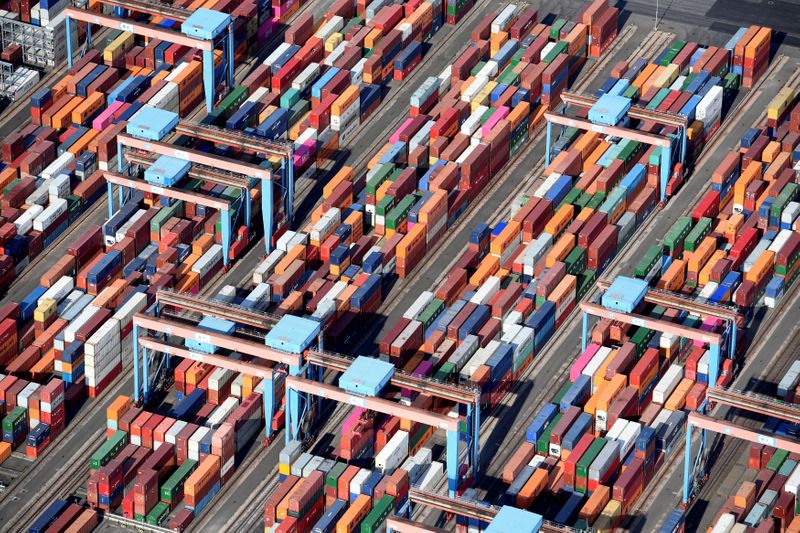BERLIN (Reuters) – German exports rebounded less than expected in May as demand remained subdued despite the lifting of lockdown measures introduced to contain the spread of the coronavirus, data published on Thursday showed.
Seasonally adjusted exports surged by 9% on the month after diving by 24% in April, remaining almost 27% lower than their pre-crisis level in February, the Federal Statistics office said.
Imports rose by 3.5% after a slump of 16.6% the previous month, suggesting that consumption in Europe’s largest economy remained weak. The trade surplus increased to 7.6 billion euros.
Economists polled by Reuters had expected exports and imports to rise by 13.8% and 12% respectively. The trade surplus was predicted to come in at 5.2 billion euros.
“All beginnings are difficult: The rise in exports is no reason to celebrate,” Alexander Krueger of Bankhaus Lampe KG wrote in a note. “The road to past capacity levels is long and depends strongly on the revival of international demand.”
The Statistics Office said exports to China were 12.3% lower than in May last year, while exports to the United States were down 36.5% year-on-year in May.
As Germany’s export-dependent manufacturers languish in recession, the government wants to revive the economy by boosting consumption through lower rates of value-added tax for the second half of the year and a one-off stipend for parents.
“In past recoveries, the German economy could always count on exports to kick-start the recovery,” said ING economist Carsten Brzeski, adding that exports to Asia had helped Germany recover from the 2008 financial crisis.
“This time around, the economy will have to look to something other than exports to stimulate growth,” he said and pointed to government stimulus.
“If it succeeds, Covid-19 could have been an important driver in finally getting a more balanced growth model of the German economy.”
(Reporting by Joseph Nasr; Editing by Michelle Martin)





















